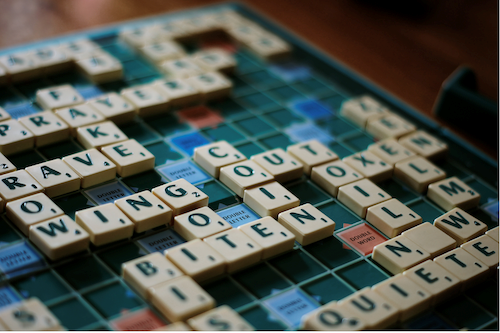Making Letter Memories: Educational Word Games for Happy Families
One of the best ways to grow literacy in children is through fun word games. They help kids in several ways, such as improving their spelling, vocabulary, and communication skills. Not only that, but they also help children retain more vocabulary and grammar rules. Parents should make educational word games a regular part of their child’s routine.
After just a few months of playing, you will be surprised by how many new words they have learned. From online games to physical and traditional word games, there are innumerable games that benefit your kids and make them happy. In this post, we’ll go through the best ones that offer great value to children.
1. Engage in Anagram Word Puzzles
Anagram word puzzles help increase memory vocabulary, and boost problem-solving skills. They are phrases or words formed by rearranging the different letters of a word or phrase. Words from these anagrams can be rearranged into other meaningful words.
If you find it hard to use them, use an anagram solver to solve the puzzle in a few seconds. Such a solver also helps you to win other games like board games and crosswords.
2. Once Upon a Word
This game lets everyone create a story. In it, one person begins by adding a word. As the number of words increases, it naturally leads to the creation of a story. If you are a parent, guide this story while giving words that make the storyline progress.
If the story seems to continue for too long, set a certain number of rounds or ask a player to add a sentence rather than one word.
3. Words Within A Word
This is a favourite of teachers. But parents can also play it with their kids at home. All you need is a whiteboard or a piece of paper. Write a lengthy word on the paper or board. Now, ask your child to make as many smaller words from it. They can only use the letters in the long word that you have written on the paper.
To make things interesting, set a three-minute timer and challenge your kids to produce as many words as they can during this time.
4. I Went To The Zoo
It is one of the traditional educational word games that never goes out of trend. The game begins with the first person saying, ‘’I went to a zoo and saw a …’’ They choose an animal. After that, the second person speaks, ‘’I went to the zoo and saw a…’’ They will say the animal of the first player and add their own. This goes on until someone recites the names of the animals in an incorrect sequence.
While playing this game, you have two choices. You can either use one letter. For example, if you choose ‘P,’ each one of your animals will begin with this letter.
Another option is to use all alphabet letters in order. In this case, the first child will pick an animal starting with ‘A,’ and the next child will choose an animal starting with ‘B,’ and so on.
5. Tutti Frutti
In this game you give children a pen and paper. Now, your kids will take turns to think of a theme. It can be anything like animals. The players will write down as many things as they can at a particular time. The child with the most items will be declared as the winner.
If your children cannot write as yet, let them participate in the oral version of this game. On the other hand, if you have older children, increase the difficulty level of this game by narrowing the category. They can write animals beginning with only the letter P.
6. HANGMAN
It's a classic word game wherein a person thinks of a word and creates a dash along the sheet to show every letter in that word. Above it, that player will draw a platform and a stand. The other person will guess one letter at their turn. If this letter comes in the first, the first player will fill in the blank. If not, the wrong letter will come below, and the first player will draw one body part at a particular time.
If the player can guess the word before different parts of the body get completed, they will win. Otherwise, they will lose.
7. Mouse and Cheese
This is another great educational word game that improves the vocabulary of children. Draw a zigzag line to show stairs or steps. Now, draw a mouse at the end of the stairs. The child will think of a word and create a series of dashes. One dash will be for one letter.
Now, other kids will name the letter by taking turns. If they make the right guess, the letter will be written on the appropriate dash. But if they make incorrect guesses, the child who came up with the word will draw an arrow to show the mouse climbing the steps.
The first one who guesses the word correctly will win. But if no one is able to guess the word, and the mouse climbs to the top of the stairs, the game ends.
Concluding Words
The word games mentioned above will help you expand various skills in your child. Moreover, they are entertaining and will keep your kids engaged. They won't complain of feeling bored. You can use the one that suits your child’s age and existing skill levels.
